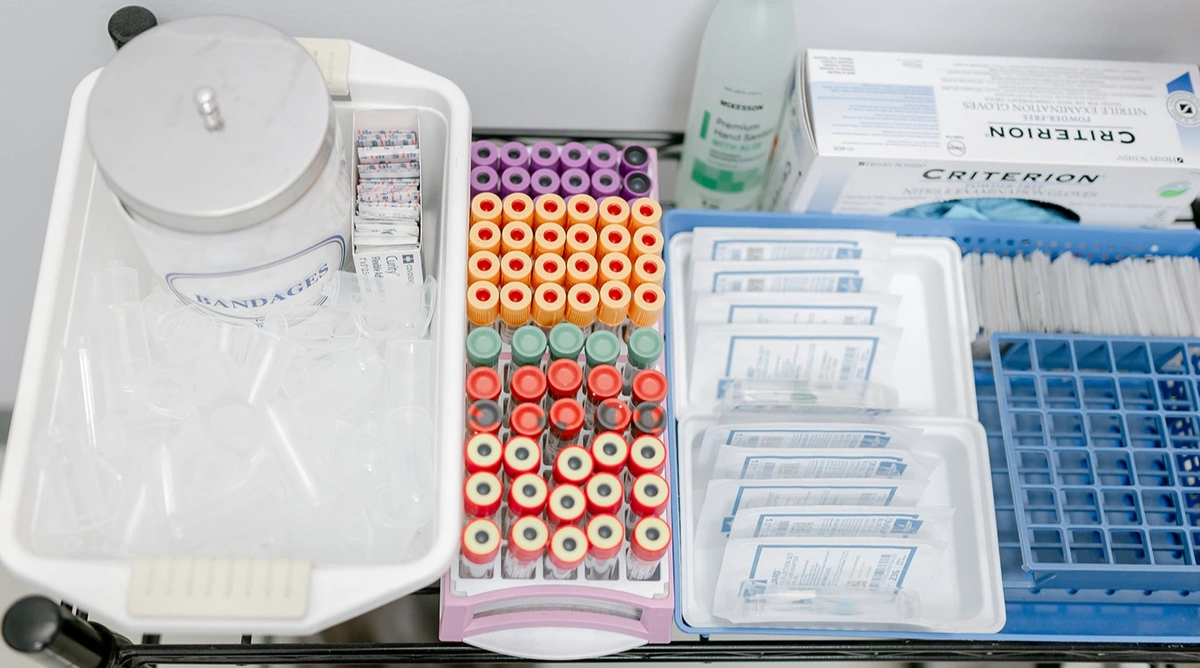
How Hormone Testing Can Reveal Key Insights into Your Fertility
Tests that evaluate your hormones are among the most insightful tools for assessing reproductive health. They provide a window into your hormonal balance and offer valuable information about your fertility potential.
Why Evaluate Hormones?
Hormones are chemical messengers that regulate many aspects of fertility, including ovulation, menstrual cycle regularity and general well-being. By measuring hormone levels in your blood, fertility specialists can identify potential issues, tailor treatment plans, and provide guidance on your fertility options.
-
Follicle-Stimulating Hormone (FSH): FSH is a key hormone produced by the pituitary gland that stimulates the growth of ovarian follicles, which contain your eggs. Testing FSH levels early in your cycle can indicate your ovarian reserve and elevated FSH levels may suggest diminished ovarian reserve. However, FSH test results are less reliable than other tests because results can vary between menstrual cycles.
-
Estradiol (E2): Estradiol is a form of estrogen produced by the ovaries. Measuring estradiol alongside FSH helps assess ovarian function and provides context for interpreting FSH levels.
-
Luteinizing Hormone (LH): LH works in tandem with FSH to trigger ovulation. Testing LH levels can reveal whether ovulation is occurring normally and help diagnose conditions like polycystic ovary syndrome (PCOS), which can disrupt the hormonal cycle.
-
Anti-Müllerian Hormone (AMH): AMH is produced by ovarian follicles and is one of the most reliable indicators of ovarian reserve. Unlike FSH, AMH levels remain relatively stable throughout the menstrual cycle, making it a convenient and informative test for assessing egg quantity.
-
Progesterone: Progesterone levels are tested mid-luteal phase (on average a week before the next expected period) to confirm ovulation. Adequate progesterone production is essential for maintaining a healthy uterine lining and supporting early pregnancy.
By combining these tests, fertility specialists gain a comprehensive view of your hormonal environment. This information helps identify potential obstacles to conception and informs personalized recommendations, whether you are trying to conceive naturally or exploring assisted reproductive technologies like IVF.
Why Hormone Testing Matters
Hormone levels fluctuate throughout your menstrual cycle, and deviations from the norm can signal underlying issues.
These insights are invaluable for both individuals trying to conceive and those considering fertility preservation options. Hormone testing helps fertility specialists develop personalized treatment plans, whether it's for natural conception, assisted reproductive technologies like IVF, or egg freezing.
What Hormone Testing Can Reveal
-
Ovarian Reserve: Tests like AMH and FSH provide information about the quantity of your eggs.
-
Ovulatory Function: A defined rise in LH midcycle (the “LH peak”) helps determine if ovulation is occurring regularly.
-
Menstrual Irregularities: Hormone imbalances can explain irregular cycles and associated symptoms.
Abnormal hormone levels do not automatically indicate infertility. Many hormonal imbalances can be treated and addressing them early often improves the chances of a successful outcome.
Next Steps
At The Reproductive Medicine Group, hormone evaluations are used in addition to other fertility tests such as physical evaluations, ultrasounds and hysterosalpingograms (HSG). The results of these tests give our fertility specialists insights into your ovarian reserve, hormone levels, and reproductive anatomy. Your fertility specialist will discuss your results in detail and may recommend further testing or treatment options tailored to your specific needs.
Your Fertility Journey with The Reproductive Medicine Group
At The Reproductive Medicine Group, we are committed to supporting you through every step of your fertility journey. Our team of compassionate professionals provides personalized care, utilizing the latest advancements in reproductive medicine to help you achieve your goals.
If you have questions about your reproductive health, we invite you to schedule a consultation. Together, we can explore the best path forward for you.

